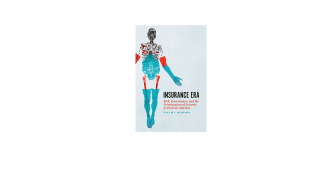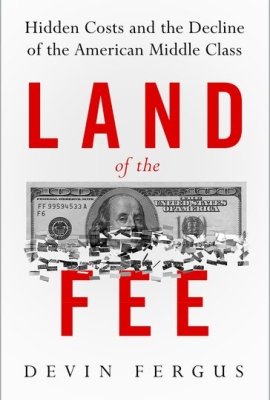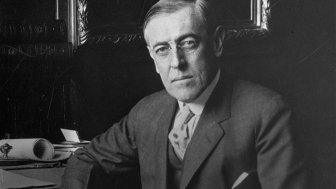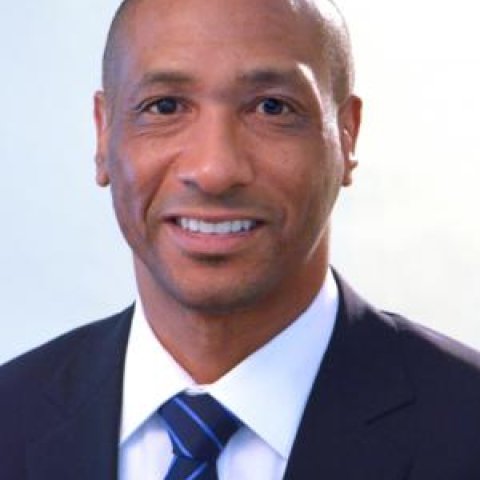Devin Fergus
Guest Speaker
Professional Affiliation
Arvarh E. Strickland Distinguished Professor of History, Black Studies, and Public Affairs, University of Missouri
Expert Bio
Devin Fergus is the Arvarh E. Strickland Distinguished Professor of History, Black Studies, and Public Affairs at the University of Missouri. Professor Fergus received his PhD in American History from Columbia University. He is the author of Land of the Fee (2018) and Liberalism, Black Power, and the Making of American Politics (2009). His new project explores Clinton's Presidential Initiative on Race. This work will be co-authored with historian Nishani Frazier who served as the personal assistant to President Clinton's race commission chair, Dr. John Hope Franklin.
I have published extensively on issues of politics, identity, and inequality in recent American history. My first book, Liberalism, Black Power, and the Making of American Politics, explores the interplay between liberalism and black nationalism, from 1965 to 1980, and why the very policies of liberalism that moderated black power also energized the New Right. My current research takes on the rise of a cryptic collection of fees and charges in such forms as subprime mortgages, payday loans, or seemingly anodyne postal-code sensitive insurances. This so-called ghetto tax has helped fuel a redistribution of wealth from the rest to the rich both in the U.S. as well as other free-market liberal democracies over the last generation. The book also serves as inspiration for an upcoming documentary film, tentatively titled Broke Black Nation.In addition to these monographs, I am the guest editor of the interdisciplinary journal, Kalfou, founded by George Lipsitz and Melvin Oliver who helped pioneer the study of social policy, economic structuring, and wealth redistribution in modern America. The special issue is titled "Banking Without Borders: Culture and Credit in the New Financial World" and maps the "new world" forged by deregulation since 1980. In particular, contributors will explore the parameters of the new financial world.My background reflects a long-term dedicationto the interlocking agendas of the pursuit of scholarship and social responsibility, and my research has focused on social issues and policies affecting traditionally under-served segments. As a graduate research fellow in the Institute for Research in African-American Studies at Columbia University, for example, I coordinated and worked on conferences that centered on social policy and the role of intellectuals in the life of the community: "The Future of African-American Studies" and "The Crisis of Black Youth." For the last two years, I have also served as an expert consultant to the internationally renowned legal consulting firm, The Round Table Group.
Education
B.A. (1992) History, North Carolina State University; M.A. (1997) US History, Columbia University; Ph.D. (2002) US History, Columbia University
Experience
Assistant Professor of History, Vanderbilt University 2002-present
Expertise
Twentieth century US political history; US social policy; African-American history
Wilson Center Project
"Land of the Fee: The Decline of the Middle Class and the Making of the New World Financial Order"
Project Summary
My current research project, Land of the Fee, excavates the link between deregulation, national politics, the built environment, and wealth disparity since the 1970s. Why is a U.S. soldier three times more likely to assume payday loans than the average consumer? How, following years of record homeownership—-typically the most reliable builder of wealth in a free-market society—-has wealth disparity between America's rich and the rest only increased? And why, despite closing income gaps between whites and minorities and women and men over the last quarter century, for example, have racial and gender wealth trends widened between these same groups in the U.S. over the same time?
My project explores the historical reasons for the sharp increase in economic inequality in the United States beginning in the 1970s, what policy makers have done to aggravate and remedy this disparity, and what has proven to be the impact of this gap. Central to my analysis is the "ghetto tax," a primary driver of wealth disparity and product of the deregulatory environment of the late twentieth century. By ghetto tax I mean a collection of hidden fees and charges (e.g., high-cost mortgage and equity loans, payday loans, and zip code-based insurance premiums) paid by consumers from female, elderly, minority, immigrant, urban, the working poor, and increasingly middle-class populations. Nationally, cutting the ghetto-tax for families by just one percent translates into as much as $6.5 billion each year in new spending power—monies these families could use to save or invest in retirement and incoming-growing assets. By examining the roots and consequences of the ghetto tax, I offer new insights into the creation and maintenance of today's wealth gap.
The book closes by considering its global implications, including the sudden emergence of the ghetto tax as recruiting fodder for Osama Bin Laden.
Major Publications
- Land of the Fee: The Decline of the Middle Class and the Making of the New World Financial Order (in progress);
- Liberalism, Black Power, and the Making of American Politics, 1965-1980 (The University of Georgia Press, Spring 2009);
- Guest Editor, "Banking Without Borders: The Making of a New World Financial Order," Special Issue of Kalfou/Crossroads (George Lipsitz, Senior Editor) Fall 2010
Insight & Analysis by Devin Fergus
- Past event
- History
Insurance Era: Risk, Governance, and the Privatization of Security in Postwar America


- Book
- Geoeconomics
Land of the Fee: Hidden Costs and the Decline of the American Middle Class

- Past event
- Wilson@50
Wilson's Legacy Reconsidered


